He Left A Piece of Himself on The Tilt
Notes on the traces of strangers in Amsterdam and Paris.
The TV is tilted at a forty-five degree angle. I point it out to N because I’m unable to see the show that we’re attempting to watch late at night in our hotel room in Amsterdam. Laying in bed watching mindless MTV becomes our way to unwind after trekking twenty thousand steps across the city like a Google Earth vehicle, scanning to memorize every detail.
The man — or at least I picture them as a man — that rented the hotel before us must have sat down on the corner stool to watch TV. The size of it suggests a single traveler and given the way men are, the way things are, women would think twice before traveling alone to this part of the city.
He would be sitting upright against the wall, the plush red pleather cushioning his stay, and he’d skip between channels in a manner not unlike our own.
White noise.
The city is alive behind the curtains. There in the mess that remains from a night carried over the swell of a beer belly, exists so many people. The crowd bustles out of cafes, their elongated shadows are imprints of this moment in time, of this place.
Strangers enacting their desires through their motions, through their body language. A piece of a puzzle. A story we do not get to read. My mind picks up the crumbs they leave along the way.
A hearty laugh is heard coming from the park, it warps around the corner of the building onto my street. A sonic silhouette. I know them, and I
do not know them.
The Earth, a flattop spinner spinning with us on it, flattens into a 2D-net. It compares the furthest most points of our humanity like a map does; with proximity, with perspective.
I try to think about how through this new ‘net we are able to find one another more easily. I look at N whose asleep, the clock’s hands having twitched between this day and the next for some time now, and I smile. Without it I would not know him and without it — the world wide web — I would not know you, either.
A spider catches its prey.
I recognized, the moment I witnessed the angle of the television and the seat on the corner, that there are things we all do. Just because something feels universal doesn’t mean that it is and yet, the fact remains that we are more, or less, the same.
I jolt through my words, at you.
The space that enabled this conversation, the broken crevasse of a city that swells with populace, encompasses the unburdened rooms of my mind. I am filling them with traces of strangers, of passerby, of figures captured by the city’s wanton lights and the delay that exists between a camera’s shutter and its capture.
I did not take as many pictures as I did in Paris, these pictures are of that city. Two cities have been recorded; Amsterdam in text, Paris in photographs. Their shapes collide with the history of this year. My journal entries recount its existence.
The memories of the two are intertwined, if for no other reason that they display the actions of the last two months.
The man in the hotel room to our left came in with a call on his loudspeaker. I was unsure of how the proximity to another, could make us feel what was being felt at the moment the call was being had, the it—the memory of itself —becomes itself. The first ‘itself’ meaning the memory of that moment, which has now passed, the second being the text ‘here’ that evokes it.
I do not understand Dutch and yet I can sense the type of meaning the sounds carried.
This, I’ve found, is how the voice in my head, which is to say a form of consciousness and not mental illness (although I’m sure there’s a bit to that, left for another day) that tells me other people’s secrets. She, the voice, says; I am able to digest what is left and while I’m no Sherlock, you will know a life has come through here.
A life is lived, and strained through the cheesecloth fabric of memory, a past life peeks from behind a mask. A gossamer web. A veil, unveils.
I change over to the National Geographic channel, where a documentary is being shown about a crashing plane. The tone of their voices and the pale blue background, reminiscent of the paper cyclones of school pictures or cheap LA photo-studios, give the documentary a dramatic flair. It embellishes the reiteration of facts.
In that lie, the lie of making something appear manicured, more pristine than it really is, there is something familiar. In playing with the palatability of the truth, we uncover additional layers hidden underneath.
I think most people that move to a big city are yearners. A person who is unsatisfied by a lack in their small town (knowable only to them) picks up their things and moves into the unknown. I remember as a kid all I wanted was to be around people that were strangers to me. I wanted to get to witness their lives, as a way to live more than I was physically capable of doing. Just reading about them in book pages wasn’t enough.
I want to see their aspirations. I want to source the essence of myself within the amalgamation of other people.
The tempo of it befits a waltz. One, two, three…
They had a desire to run towards or away from something. A dream that they may or may not have succeeded in reaching. They moved for that reason and yet, become moribund in the thrashing consistency of the city.
Most cities are unkind, unaffected by your ability, or lack thereof, to live within it.
I am most intrigued by the many that do not succeed, I see those I love in their figures. I see myself, too.
On the National Geographic documentary, the man who works at the airport sports a spray-tan. He appears to be an actor but is not. This is not a reenactment, he sits in front of the paper background and talks about the ‘incident’ in detail. The only reenactment is the memory of the event, taking place like a film reel or re-run in his mind.
I picture his reasons for moving to the cold winter city, a place I recognize as America but not one I know intimately. Images of snow are shown between the rush of recounting. I think about how his face does not match the place he is in.
He looks like he must have, at one point, wanted to be an actor or a rockstar. Despite wearing a suit, his tan and his watch signal towards a mischievousness that is mirrored in the faces of failed actors I came across in my time in Los Angeles.
He was the embodiment of 80s male glamour; big mullet, muscles and shining teeth. It seemed as if his look was once popular, as if he was once popular, but he’s grown out of his peak demographic and therefore is no longer relevant. The desire to impress remains, out of time, in the spray-tan, the watch, the hair, the haunted smile.
Eventually the whole world thinks you’re moot. There’s so much in this that is heartbreaking. I think; we could have been something, we really could have, hell, we could have been anyone.
We move to the city to meet other people and in seeing them, unfiltered in their most intimate moments, we catch a reflection of ourselves.
I see myself in everyone.

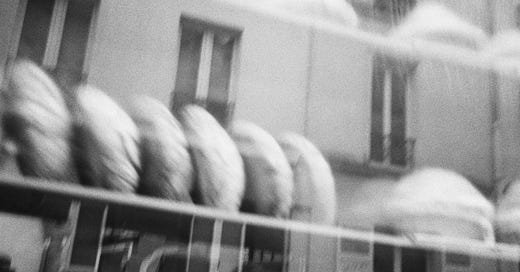


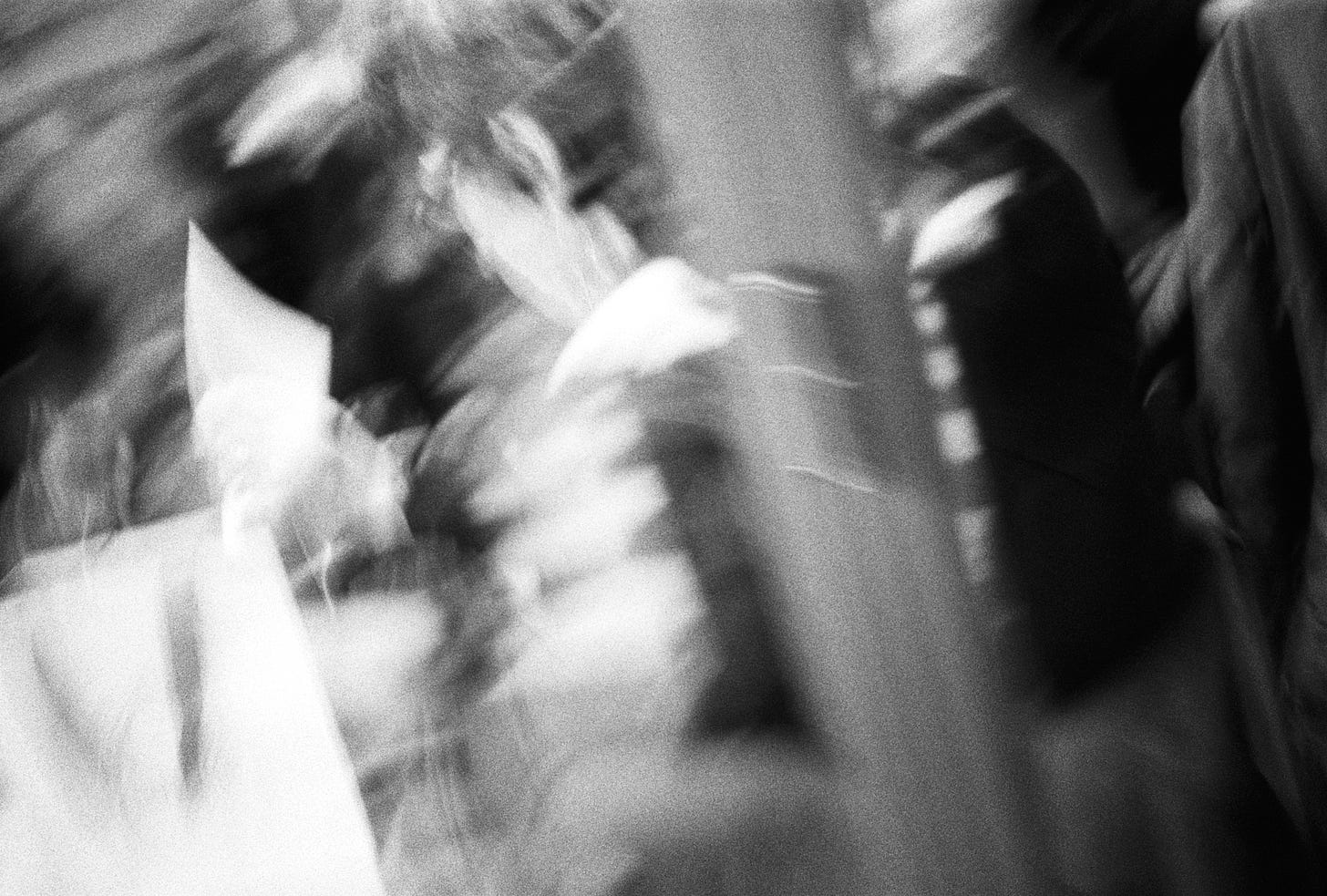
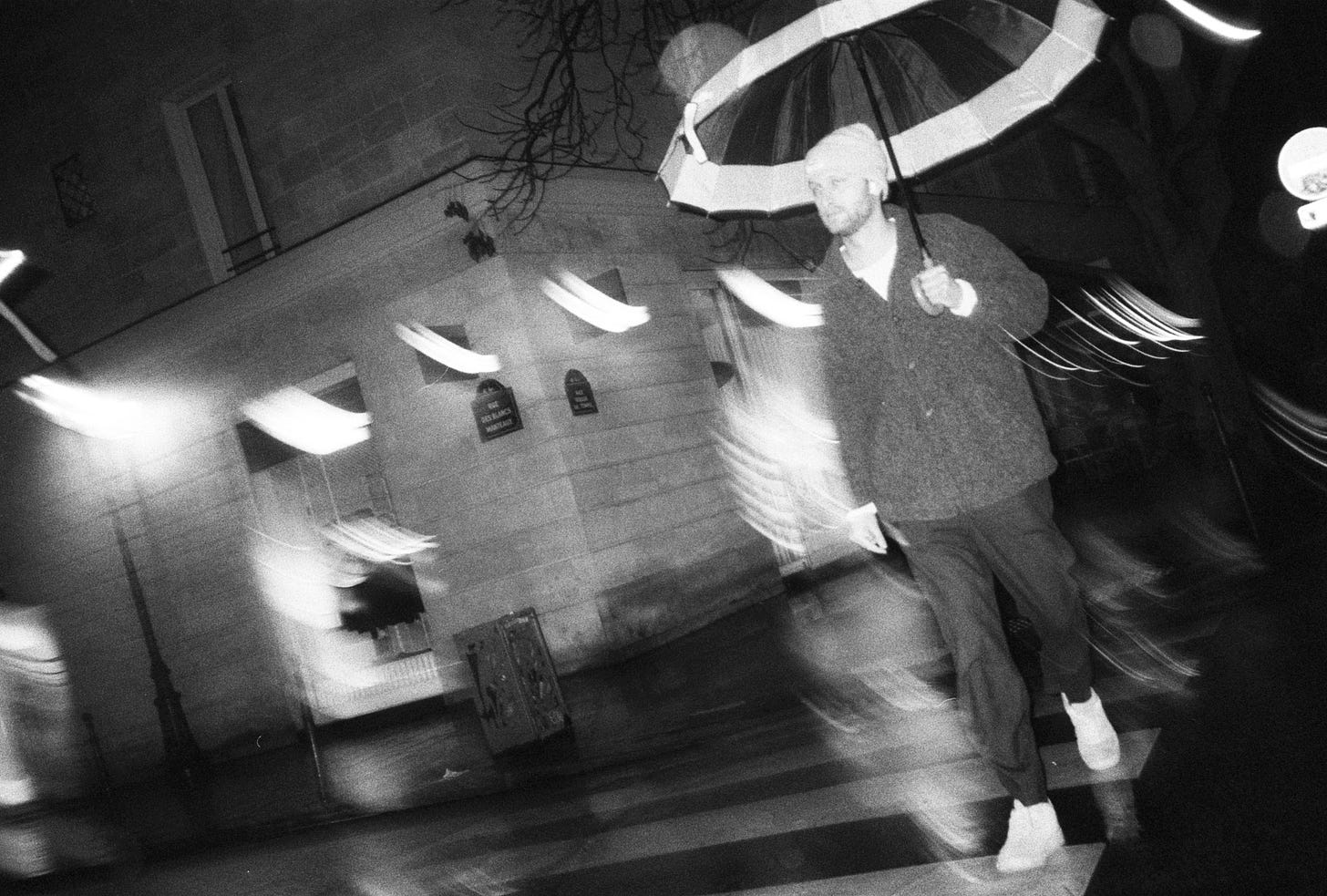
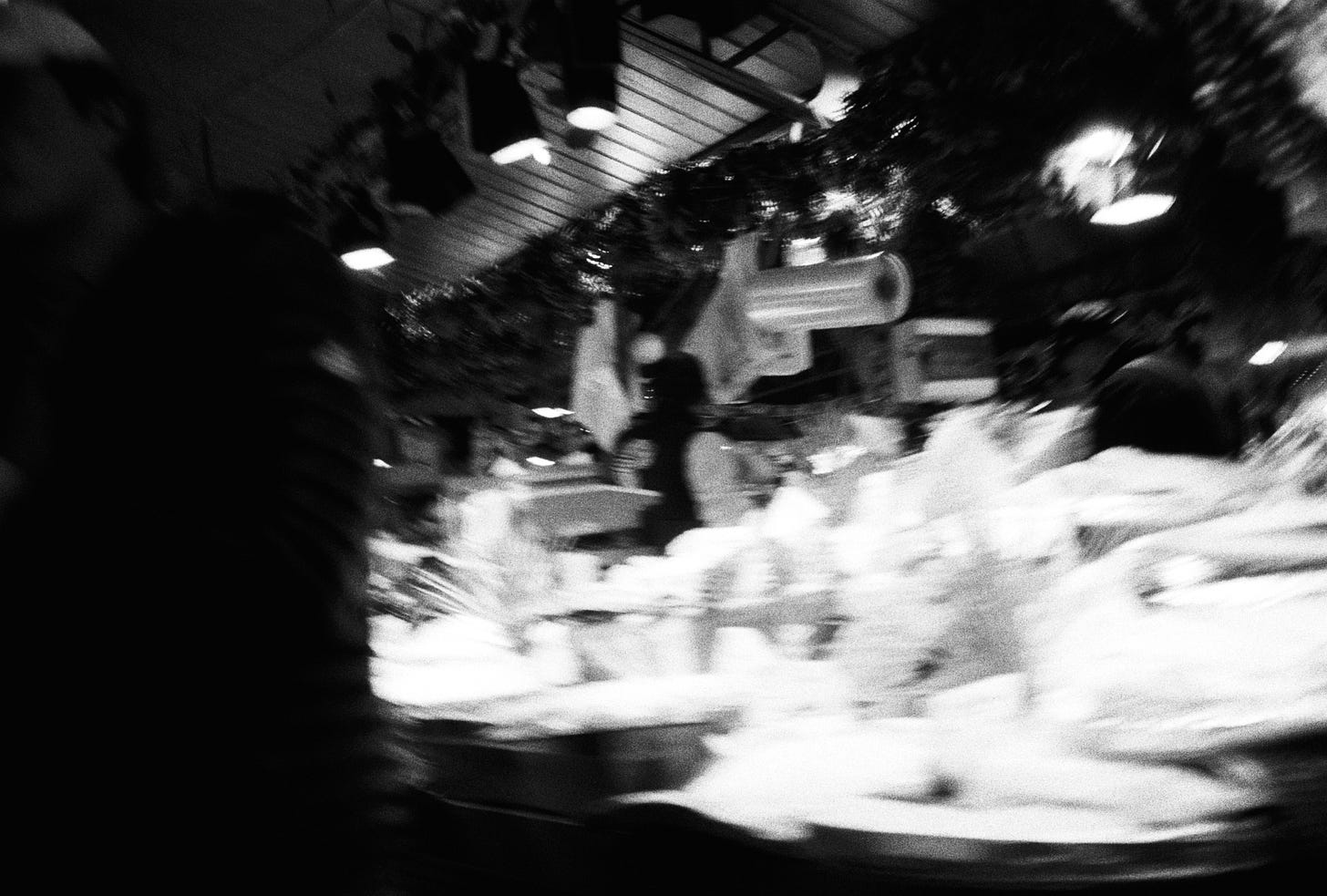
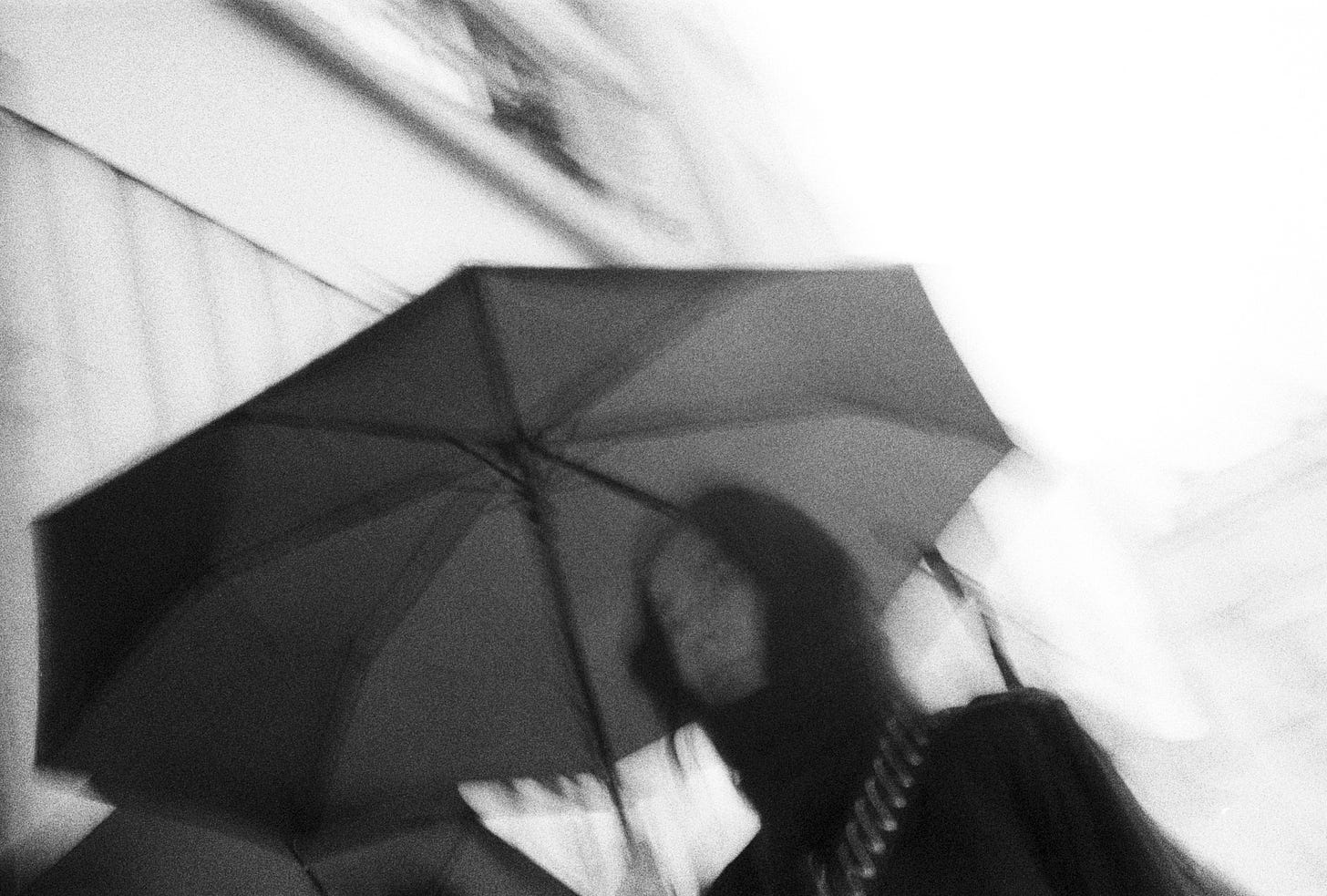
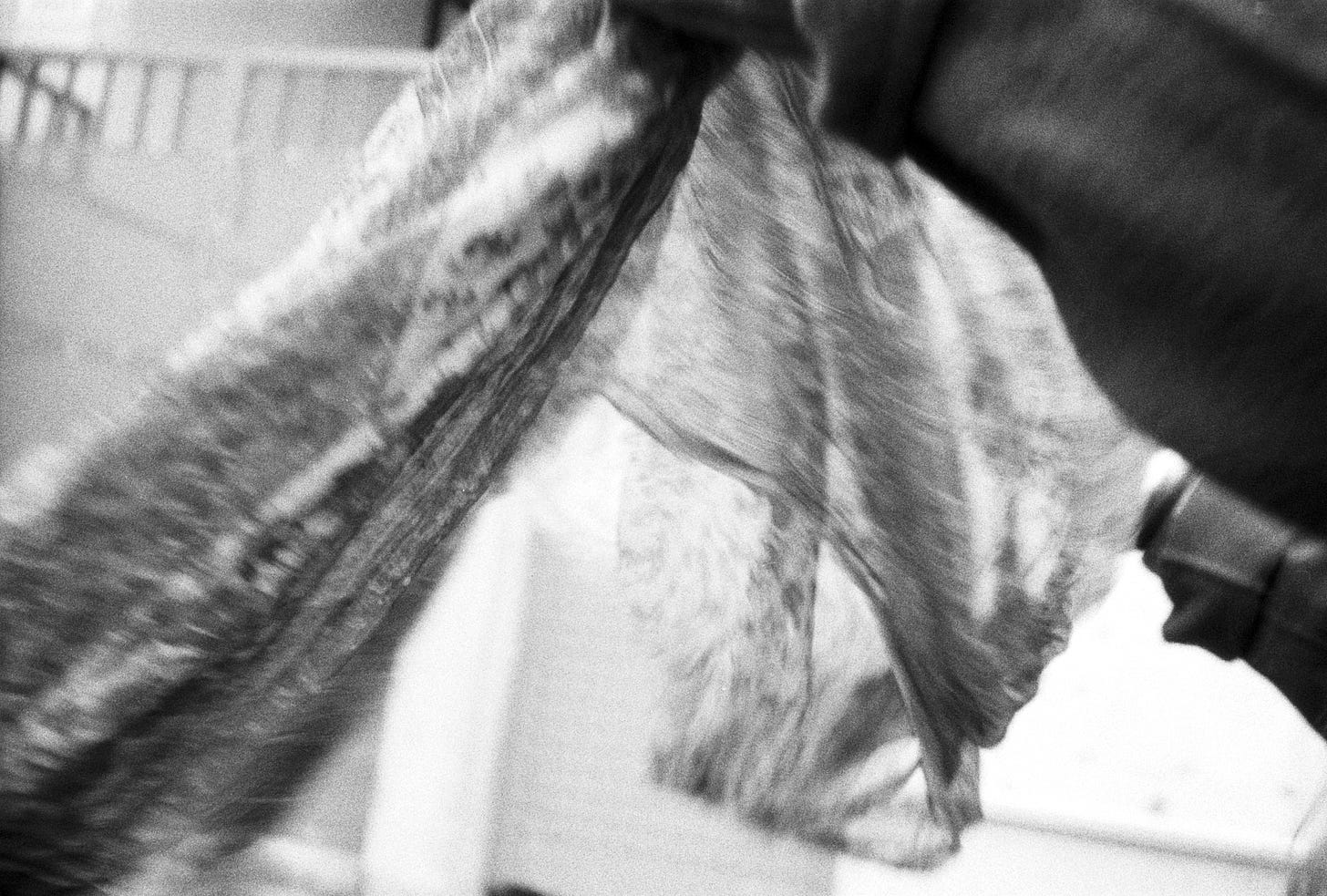
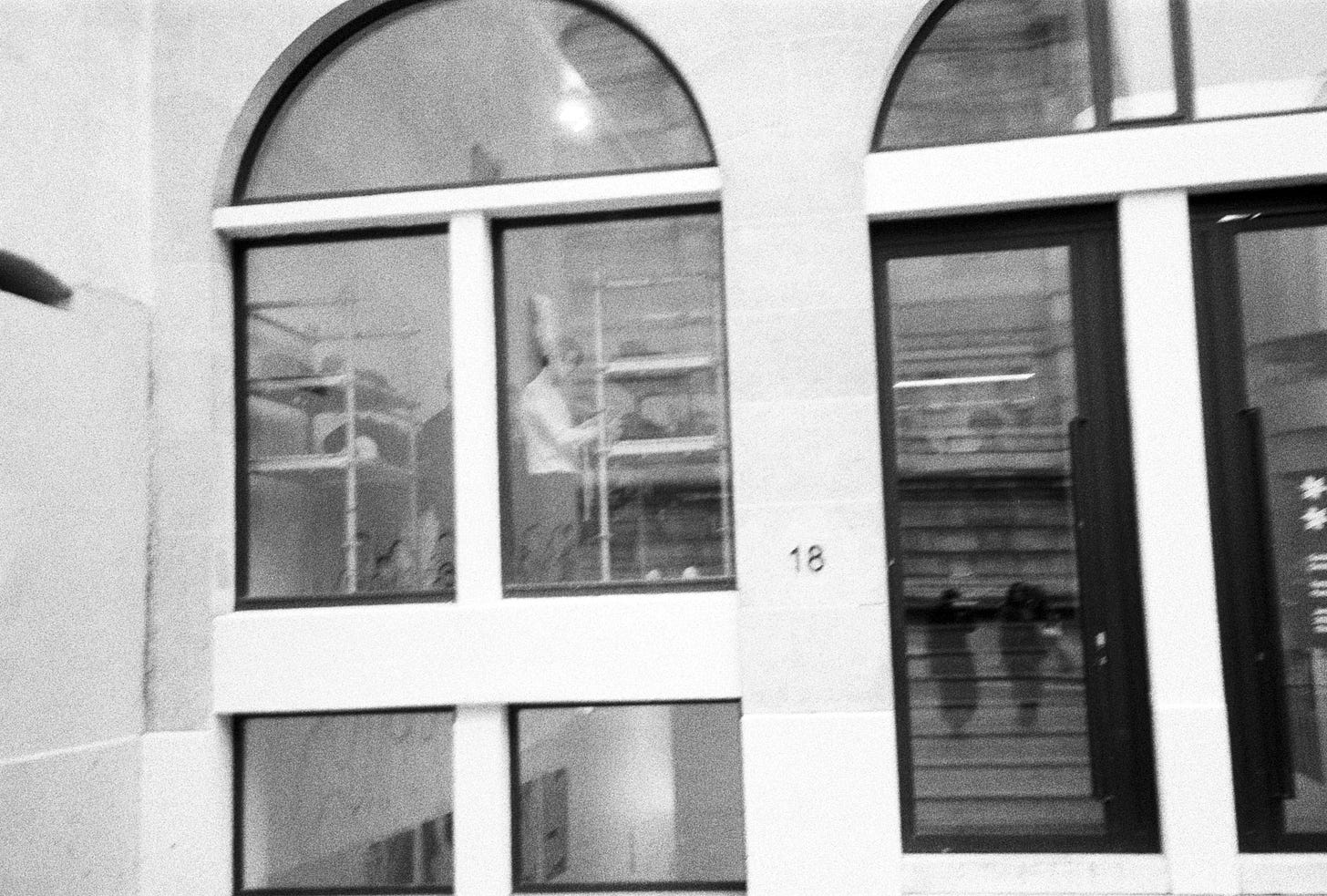
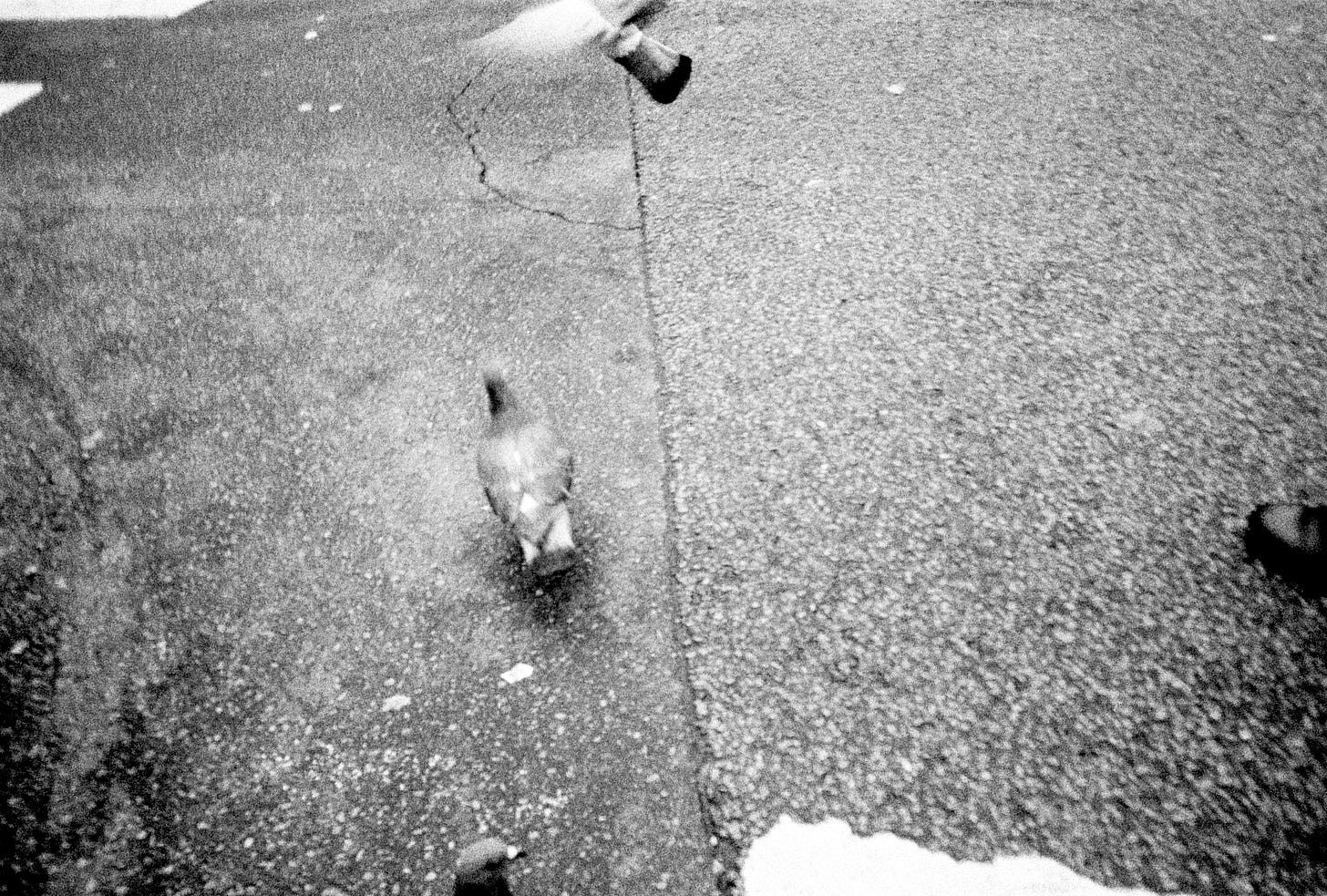

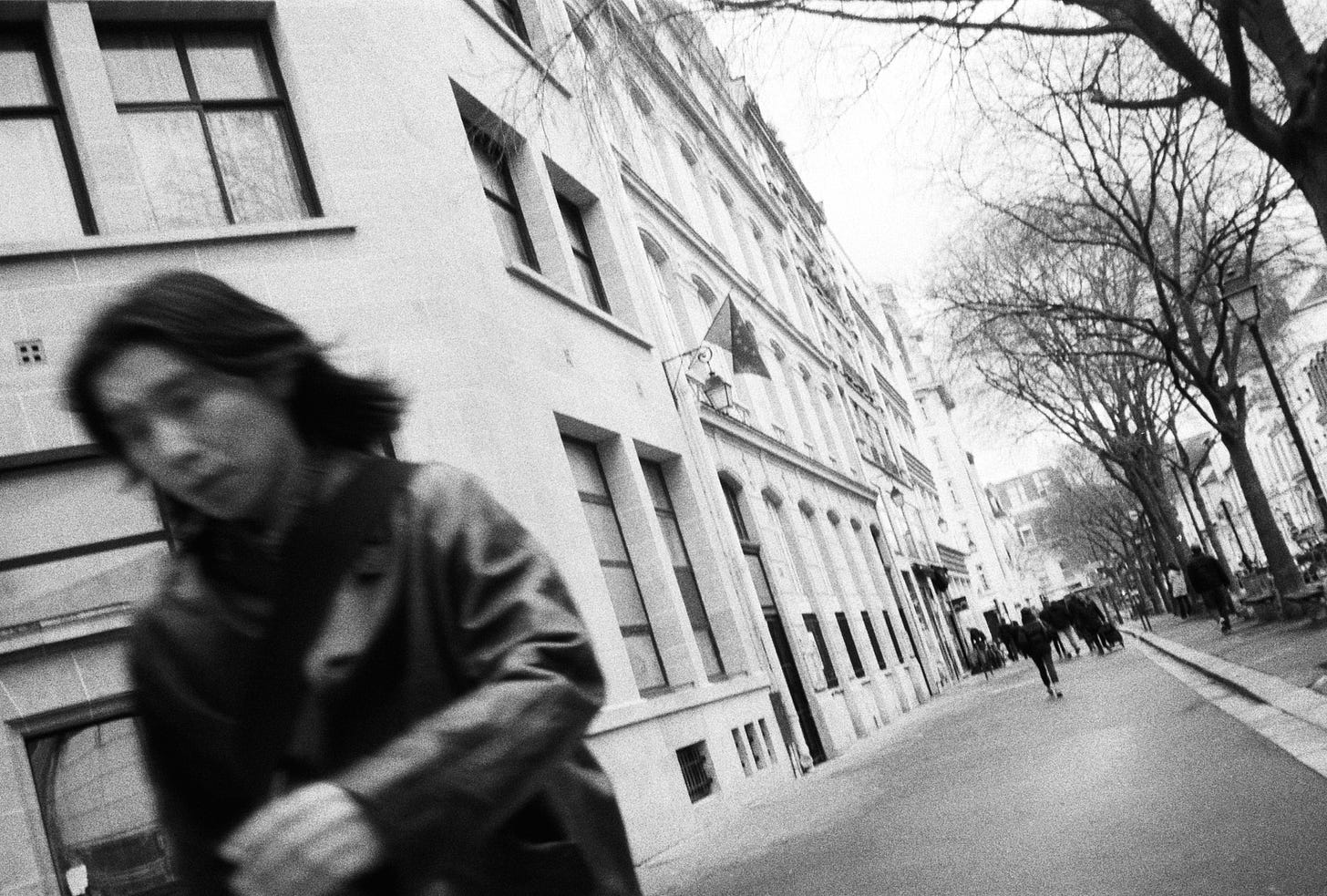
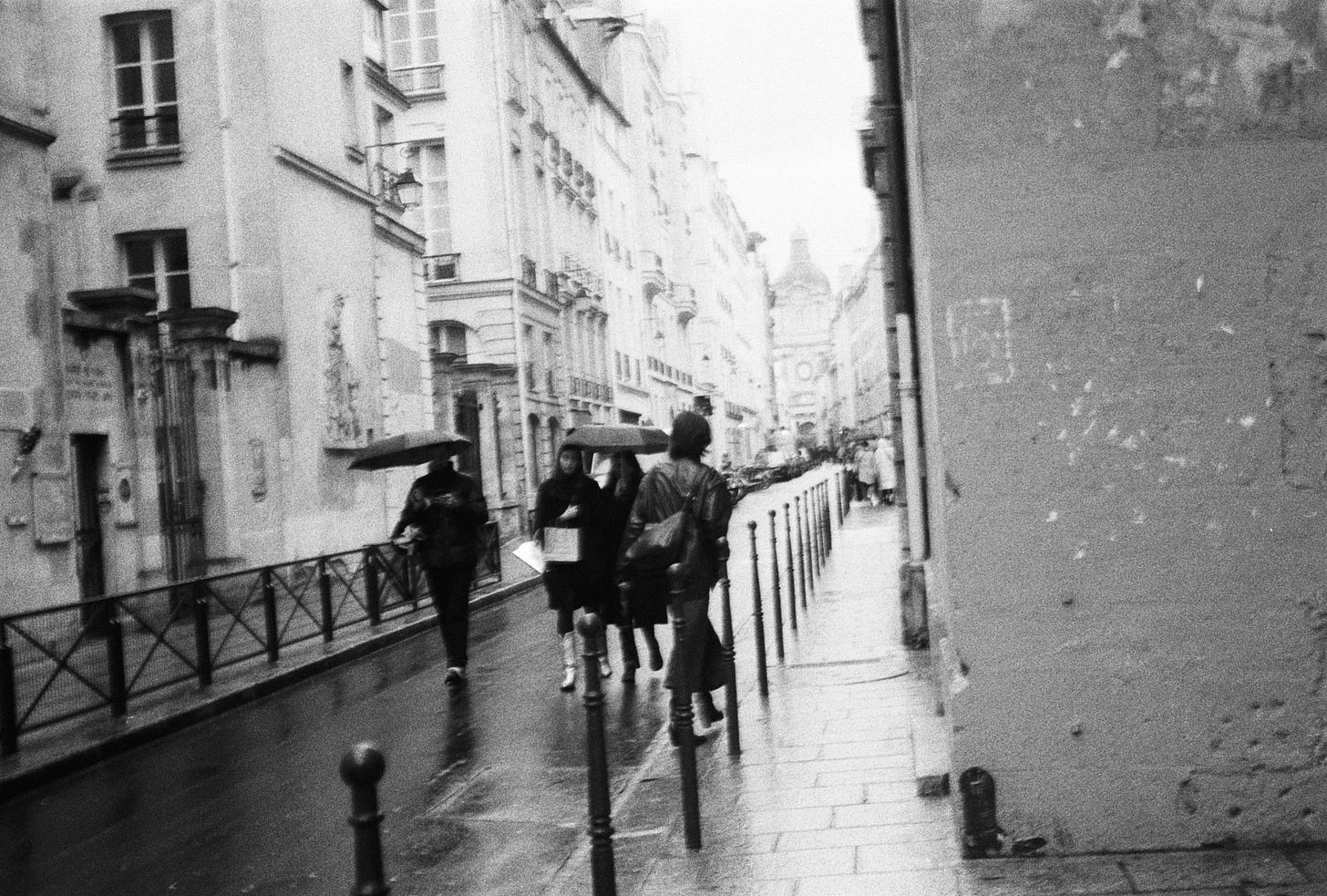
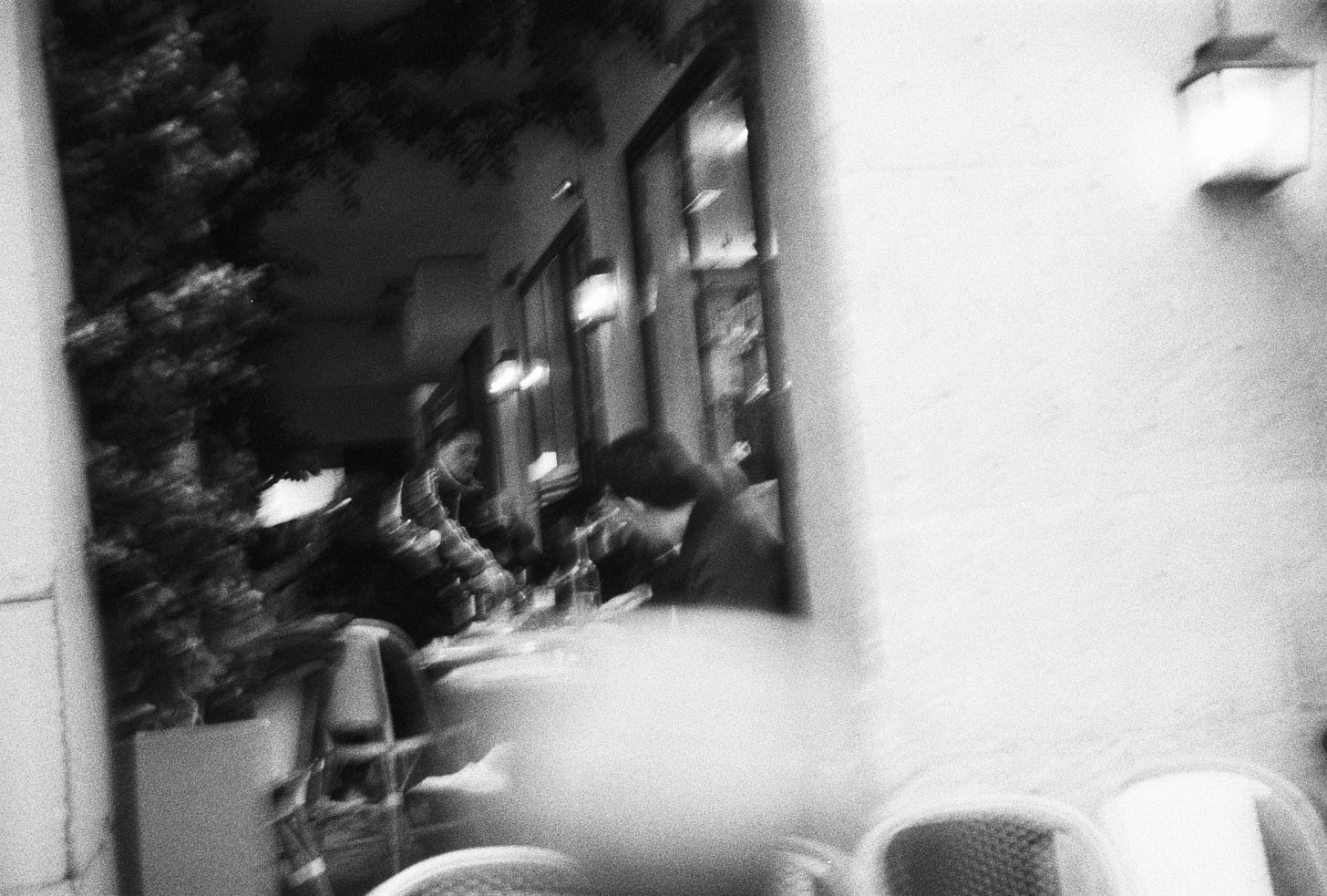
I love these photos !!